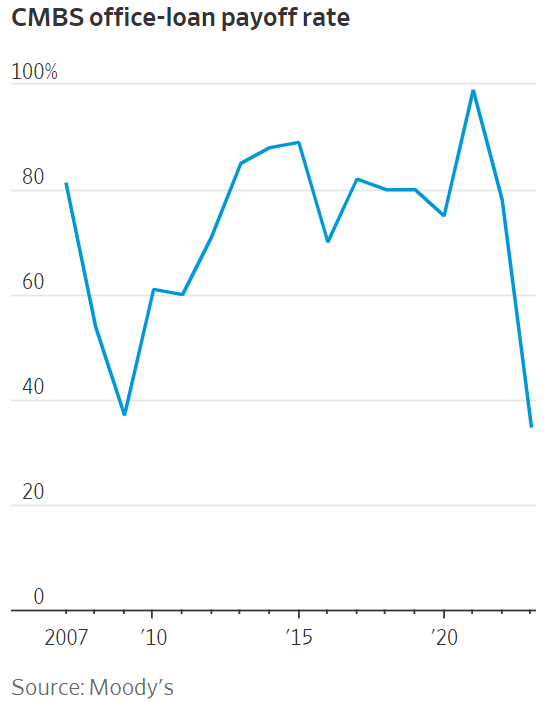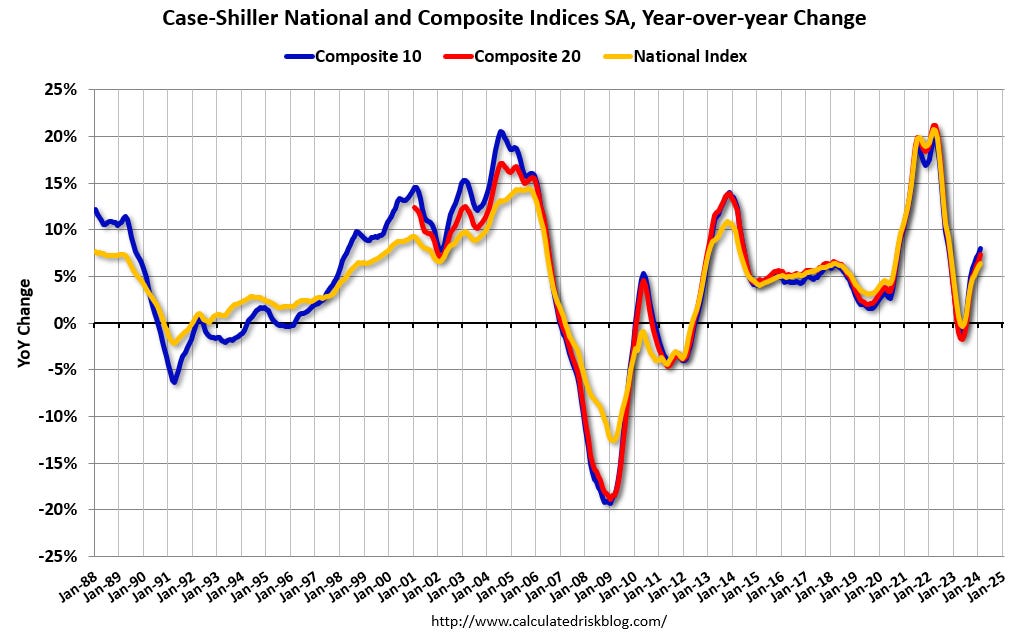Check out my most recent podcast - and the associated drama.
"I feel like a lot of what's perceived as wealth is an inflation illusion."
“The innovation that comes out of the US economy, in the United States, in general is unparalleled, and so this is really the place to be investing for the most part. The smartest smart people and accommodating government, meaning that they allow business to flourish for the most part, and you put those things together and it generates great, great things, and we've seen this now for 200 years out of the US, but for the past over a decade we have had a command economy, which we've never really had before, especially during non-war time, a non- crisis moment.
The government has determined what the GDP is by overspending, and overspending in a grotesque way, and it's fine until the bill comes due, and we are witnessing right now that bill coming due.”
“The Tapering of the QT…”
The Fed will be reducing their anemic QT by $420 billion a year.
“The cap on Treasury redemptions will be lowered from the current $60 billion per month to $25 billion per month as of June 1.”
“They announced at the meeting that they were slowing the taper by an even more dramatic pace than they had originally suggested. I thought that was a clear indication that they see that they can't continue to wind down their balance sheet without creating real dislocation in the Treasury market, and the impact that could have on the banking system is probably what they're most concerned about.”
A reminder:
Oh well, they tried.
"I like to nickname quantitative easing “monetary policy for rich people.” You could quote me on that."
"It is possible to leave university now knowing nothing of financial history, even if one has a degree in finance - even if one has a post-graduate degree.”
Russell Napier
“The only solution for the US Government will be ever greater levels of inflation to effectively reduce this absolutely insane amount of debt…I think we certainly have a long-term issue.”
Warren Buffet, 1977: How inflation swindles the equity investor
Nick Halaris
“I'm in real estate, so I've sort of been feeling the pain for two years, and noticing the sort of conditions that you find in financial panic and distress, like we've had even some tragic events where developers and investors are committing suicide because they can't get themselves out of their kind of financial conundrum with banks - like conditions are really, really bad in my world, and yet every day I turn on the TV and the stock market's going higher and higher, and the the jobs numbers don't seem to be reflective of all the people I know who've gotten fired from their tech jobs, so it seems seems like we live in this sort of Goldilocks world, or the data is presenting a Goldilocks vision, but in my view there's real pain in the economy.”
CM B.S.
“As recently as 2021, more than 90% of office loans that were converted into commercial-mortgage-backed securities were paid off when they became due, according to Moody’s. Last year, that figure fell to 35%, the worst payoff rate in the history of the data, which goes back to 2007.”
The “most liked” comment on the above article:
‘Rinse & Repeat’.
An interesting side effect of being 65 years old, one gets to see…cycles.
The business model of commercial real estate investment mirrors VC/PE/M&A & ‘Other’ Investment business models…fueled by free money over a long - generational - period of time, banking on ongoing free money as the basis of present and future ‘value modeling’ and never ending ‘rosy scenarios’.
Until it’s not, then rely on ‘too big to fail’….‘existential threat to the system’…’saving the urban city center’….blah…blah…blah.
Instead of building businesses that are real, solid, sustainable and have real value. All the pandemic did was speed up the evolution, recognition and reality that almost every ‘white collar’ job can be executed remotely with little or no effect on results.
Whether mostly remote white collar work is a good or bad thing is a separate debate, but what is true is that less office space is needed and the harm to already teetering urban centers where much of the office space resides is…real.
But if you are an owner who has squeezed every dollar from your buildings and put little, no…or the minimum dollars into reserves and you are cities that tax everything to the hilt and tax revenue plummets with no reserves…you end up in the same place….cycle after cycle after cycle.
‘Rinse & Repeat’
- Richard Matosky
WSJ: Property’s Waiting Game Is Getting Harder
“Lenders require borrowers of floating-rate debt to hedge their interest-rate exposure, often through interest-rate caps. These instruments pay out when a benchmark such as SOFR rises above a set strike rate, which reassures lenders that borrowers will be able to meet their repayments even if rates rise.
The cost of these caps has become a major headache for property owners, according to Carol Ng, a managing director at risk-management firm Derivative Logic. The price of a one-year extension for an interest-rate cap on a $100 million mortgage at a 3% strike rate is now $2.1 million. Back in January, when the market expected more rate cuts, the same extension cost $1.3 million…
Last month, New York landlords SL Green and Vornado coughed up around $100 million to extend a $1.08 billion loan on an office building at 280 Park Avenue, according to CRED iQ analysis. Less deep-pocketed owners may decide their cash would be better spent elsewhere and hand the keys to the lenders.”
“Last year, borrowers were saying, ‘I just need three months for rate cuts to kick in’,” says Killick. “We aren’t hearing that anymore. Powell sounded pretty clear that this is the new normal.”
From the comments:
The 12-month moving average CMBS loss severity stood at 61.01% in April - Trepp
“Lately, we've come across a number of foreclosures and deeds-in-lieu of foreclosure, which is leading us to agree with Capital Economics' forecast.
For instance, an affiliate of Argentic Investment Management recently took title to the Wells Fargo Center, with 653,919 square feet at 1 Independent Drive in Jacksonville, Fla., according to the Jacksonville Business Journal. The property last traded 10 years ago for $75.3 million and four years ago, Argentic had committed to lend $46.35 million against it, in order to fund a stabilization plan. But time evidently has run out. The property was 85% occupied as of last September.
Meanwhile, in Washington, DC, another alternative lender, Peachtree Group, took title to the 247-room Holiday Inn Express hotel, according to the Washington Business Journal. The Atlanta lender had provided $83 million of financing against the property, which was developed in 2022 at 317 K St. NW.
And JPMorgan Chase Bank has taken title to the Foundry, a 256,000-square-foot office property, also in Washington, through foreclosure, according to BisNow. The bank in 2014 had provided $58 million of financing against the property, at 1055 Thomas Jefferson St. NW, to facilitate its purchase by JBG Smith for $79.5 million.
Lenders generally aren't in the property-owning business, so it's likely that the properties ultimately will change hands again at what very likely will be lower prices.”
Multifamily
“When we talked last time, the discussion was that data was saying all good things, sentiment was poor - sounds like data is catching up with sentiment now.”
“I’m a limited partner in about 15 deals…and unfortunately, I I hate to say this, but I had been very fortunate that we had seen no capital calls up until this week. This week we we got two capital calls on deals that I'm a limited partner in. I don't know if it was just complete coincidence, or maybe it was those operators were were crossing their fingers and holding their breath that that everything would work out, and we'd see rate cuts and and everything would get back on track, and now that we are in a situation where the Fed has essentially said we're not going to see any rate cuts for a while, those operators have said, okay, we we can't hold on any longer without an infusion of capital. So I'm a little concerned that we may start seeing a wave of deals that were purchased in 2020, 2021, 2022, even 2023 that start doing capital calls, so that's that's my number one concern.”
“The majority of that loan [EIDL/PPP] money went either directly or indirectly to purchasing real estate”
“I work as an IRS revenue agent. We usually request bank statements as part of the audit and have to examine them for unreported income and the such, both personal and business bank accounts. The people I audit are small business owners or high-income people (income exceeding 500k+) so for these people real estate is usually the backbone of their income sheltering strategies.
I have seen in a lot of my audits where you can easily follow the money to figure out where the PPP and EIDL money is going. If my audits are any indicator, then I can easily say that the majority of that loan money went either directly or indirectly to purchasing real estate. I have seen situations where you can directly trace the flow of money. EIDL/PPP money comes in and then a few days later it goes into another account (savings account or similar). A few months later you see the money being wired to an escrow company. In other situations you see PPP money paying for payroll and such but then you see the funds that normally would have gone to paying payroll being saved up before being wired to an escrow company.
I have yet to see a single situation where you can see the small business was in any real financial stress.”
Anecdotal, but I’ve seen other similar reports.
Apartment Construction
“The national average apartment occupancy rate increased to 94.2% in April…Effective rents saw marginal gains, leading to just 0.1% YoY growth across the country, thanks to a -1.4% dip in the South balanced out by 2.4–2.7% rent growth in the Northeast and Midwest.”
Sorry, kids.
”The Federal Housing Finance Agency (FHFA) house price index (HPI) rebounded to 423.0 in February, a new all-time high. U.S. house prices increased by 1.2% from the previous month and are up 7.0% from one year ago.”
“We found that Zillow closed 32,292 home sales from January 2019 to March 2022. Zillow sold 5,013 of those homes to institutional homebuyers, with the majority of the sales occurring after Zillow announced it would shutter its iBuying business.”
Maybe there’s more to homeownership than a 3% mortgage rate
“Owners at the Regency Gardens Condominiums got notices saying their board plans to pass a special assessment on May 15th. According to the notice, the smallest homes in the condo will need to pay $11,148.42 for the assessment, and the largest homes will need to hand over $22,104.69. That full balance is due on July 31st, and half must be paid by June 30th. The memo sent to homeowners this week also explains that monthly HOA assessments will nearly triple…Many residents say they will now need to quickly sell their homes or could face foreclosure. “It’s going to be impossible. You’re going to see 60 or 70 percent of the people living here out within 6 months,” said condo owner Bryan Pricher. According to the condo board attorney Keith Skorewicz, the association must make up a more than $17 million gap in reserve funding as required by State law.”
“…the recent news that California’s largest home insurer, State Farm, would not renew 30,000 homeowner and other personal residential policies statewide in the coming months has had an outsize impact on Orinda. A Chronicle analysis of data provided by State Farm to the state Department of Insurance found that 1,700 homeowners in Orinda will lose their State Farm coverage — the most in any ZIP code in the state. The nonrenewals affect about 55% of Orinda homeowners with State Farm policies, the largest percentage in the Bay Area. Since State Farm insures roughly half of the 7,000 homes in Orinda, that means the company’s nonrenewals will hit close to a quarter of the city’s homeowners. And that comes on top of other insurers that have taken similar actions over the past two years…Carl, 76, an Orinda resident who’s been a State Farm customer for 50 years, said he was so angered by the nonrenewal notice that he penned a letter to the company’s CEO, Michael Tipsord…“I got a letter back from somebody saying ‘Tough s—, we’re canceling your liability insurance and earthquake insurance as well,’” he said.”
It seems like there will be people selling homes out of necessity - a home can really be a money pit - but any new buyers will face the same cost of living issues (unless the house prices and property taxes drop significantly).
"Who is going to buy the bonds at the current price? That's the question you have to ask yourself. I'm having a hard time finding the person buying the bonds at the current price unless we have a massive exogenous deterioration in economic conditions, or the yield rises. Those are the two things that have to happen in order for it to to get funded."
Dollar Milkshake Theory
Interest Rates headed higher
Bonds Break
Dollar Rises
US Equities Rise
Gold Rises
The US outperforms the Rest of the World
New presentation from Brent Johnson.
A few more podcasts:
Greg Weldon: US Stocks - Exit Stage Left? Very much the anti-CNBC take on the economy. He and Pomboy seem to agree on a lot.
"Bob Dylan once even said it was the greatest song ever written." - Dylan Jones
Fighting Words
“The U.S. Supreme Court ruled in Chaplinsky v. New Hampshire (1942) that fighting words are not protected by the First Amendment. Fighting words are defined as words “which by their very utterance inflict injury or tend to incite an immediate breach of the peace.” As the Supreme Court explained in Chaplinsky, “[s]uch utterances are no essential part of any exposition of ideas, and are of such slight social value as a step to truth that any benefit that may be derived from them is clearly outweighed by the social interest in order and morality.”
However, the Supreme Court has significantly narrowed the definition of fighting words over time. And, it is important to keep in mind that even if speech is offensive, it is not fighting words if it is not directed at someone face to face.”
“A friend of mine who's from Atlanta described the summer there
as ‘walking into someone else's mouth’.”


















Man oh man… it’s not AC/DC that got me. It’s remembering staying up to eagerly watch The Midnight Special. Thanks Rudy, I hate you. Hahahaha. ;)
The Wichita Lineman interlude was a treat. Made me think of this, too: https://youtu.be/mfMnNqn-hKg?si=LkYrkMkZXGMoXO00